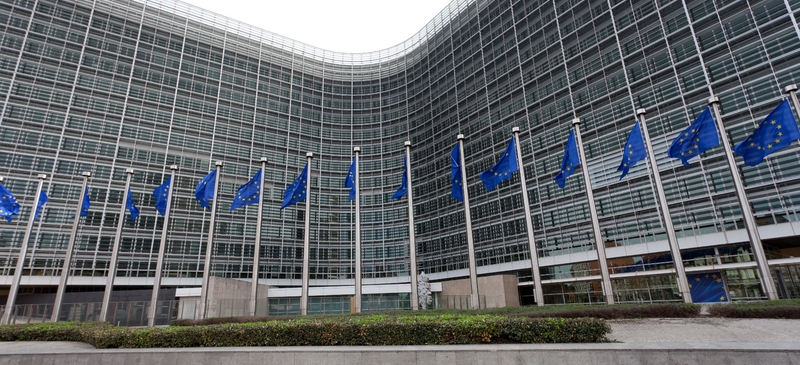
A golden opportunity for reform
It is easy to forget that the Eurosceptical mood of many EU countries is a recent phenomenon. In the late 1980s, when the EU's prime task was the creation of a single market, its popularity grew in every member-state. It was only after 1992, when the Danes (and – very nearly – the French) voted against the Maastricht treaty, that the dominant image of "Brussels" became that of an ineffective, incomprehensible, arrogant and money-grabbing bureaucracy.
The European Parliament's exposure of malpractice in the Commission, which led to its resignation last March, seemed to confirm what the Eurosceptics had been saying. So did the dismal turnout in June's European elections, and then the grubby attempt by Commissioner Bangemann, whose responsibilities had included telecoms, to land a job with a telecoms firm.
However, a rare combination of circumstances – a fresh Commission and Parliament, a new set of institutions and individuals to guide EU foreign policy, and an imminent treaty-revising conference – now offers the EU a once-in-a-generation chance to modernise its unloved institutions and start to regain public confidence.
The new team of commissioners, led by Romano Prodi, contains more political heavyweights than previous teams. Prodi has got off to an excellent start – insisting on his right to sack commissioners, laying down a new code of conduct for commissioners and calling for nationality to count for less in decisions on which official gets which job. Neil Kinnock, Prodi's deputy and chief reformer, needs to shake up this bureaucracy with the same determination that he once shook up Britain's Labour Party.
The single market cannot be enhanced or policed effectively without a strong and credible Commission. But Prodi should not be over-ambitious. There are some signs that he wants the Commission to play a leading role in steering the EU's Common Foreign and Security Policy (CFSP). Of course, the Commission has to be involved in the CFSP, because it manages EU policies on trade and aid. But the Commission should avoid institutional empire-building – a temptation which has, in the past, lost it the trust of governments.
The momentum behind efforts to construct a more coherent EU foreign policy is strengthening – in part because Kosovo has reminded governments that when diplomacy is ineffective, war may follow. The Amsterdam treaty's reforms of the CFSP machinery (including the introduction of some majority voting) have just come into force. The EU's new High Representative for foreign policy, Javier Solana, is a serious politician whose people skills should help him to forge a consensus among the governments. Furthermore, the British and French initiative to endow the EU with a defence capability has won widespread support on both sides of the Atlantic.
Yet there is a risk that too many cooks will spoil the broth. Solana, who will report to the foreign ministers, hopes that he will give a lead on EU foreign policy. But both Prodi and the foreign minister of the country holding the presidency may have similar ambitions. And then there is a group of commissioners with responsibilities for foreign policy – Chris Patten for the CFSP, Pascal Lamy for trade, Günter Verheugen for EU enlargement and Poul Nielsen for development and humanitarian aid, not to mention Bodo Hombach presiding over the ill-defined Balkan "stability pact".
If these eminent figures let their competing egos get the better of them, rather than work as a team, the CFSP could descend into farce. Their mission is to convince the Balkan peoples that the EU takes responsibility for their well-being and security; to maintain the momentum of EU enlargement; and to find new ways of tightening the EU's ties to those countries which cannot hope for membership in the foreseeable future.
Next year's inter-governmental conference (IGC) gives the EU a chance to prepare its institutions for enlargement. There is a danger, however, that the governments will be insufficiently ambitious. There is much talk of a "narrow" IGC that would merely deal with matters left unresolved at Amsterdam – numbers of commissioners, weighting of votes and qualified majority voting – and perhaps also examine defence. Some governments talk of postponing other, more difficult issues for yet another IGC, a few years hence.
Such talk is ridiculous. The EU already has to put up with far too many tedious IGCs. Next year's IGC must tackle crucial institutional issues, such as the working of the Council of Ministers (there are too many separate ministerial councils) and the rotating presidency (a guaranteed source of inefficiency). Otherwise the institutions will be unable to cope effectively with a membership which is, within a dozen years, likely to include 25 countries.
The current clutch of opportunities for reform and modernisation offers immense potential. If the EU can make a success of revamping the Commission, strengthening the CFSP and redesigning the institutional machinery, it will be well on the way to reversing the past decade's rising tide of Euroscepticism.
